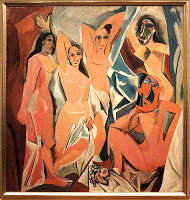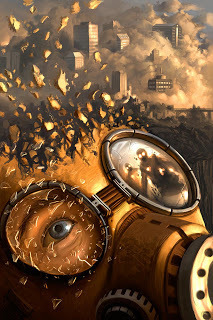Choose Your Own Apocalypse

The Warrior Muse is hosting the Choose Your Own Apocalypse Blogfest today. I admit I forgot--signed up days ago, but neglected to actually write a post--until now. I give you my version of Apocalypse :)
~~~
There was a time when our Friday evening gatherings on the porch extended deep into the night, even to the hour when skies began to lighten above us, when, as the last friend or two left, we'd turn off the light over the front door because the bright blue of Curaçao dawn made it irrelevant.
 Throughout those long evenings, over several bottles of wine, the talk inevitably gravitated towards the deep, the intangible, the intellectual--the nature of right and wrong, the fallacy of universal definitions, the meanings behind the printed words.
Throughout those long evenings, over several bottles of wine, the talk inevitably gravitated towards the deep, the intangible, the intellectual--the nature of right and wrong, the fallacy of universal definitions, the meanings behind the printed words.Speculation in spades. Exercising that mental muscle. Forcing new connections between neurons, and reveling in the energy those connections sparked, the energy that drove the conversation ever on as the Earth turned--the energy that felt to us as the very thing that made the Earth turn.
Until someone bought the first smartphone.
"It all hinges on the Demoiselles," Edward said. "That was the first Cubist painting. That was--"
 Les Demoiselles d'Avignon
Les Demoiselles d'AvignonPablo Picasso (1907)"No," I interrupted. "I think it wasn't even Picasso but Braque that made the first--"
"No, no!" Yolanda drained her wineglass, set it down on the wooden patio table with a dry ping.
"I think she's right," Manolo said, meaning me. "It wasn't Picasso."
"Edward, why don't you check?" Yolanda pointed her chin at the black rectangle next to Edward's placemat.
We all crowded to look over his shoulder as he opened the browser, used his thumbs to type in the search box--backspace, too, a few times; those damn keys looked tiny. Two clicks later, we had our answer.
"Les Demoiselles, 1907," Yolanda read from the Blackberry's screen. "Braque didn't paint his L'Estaque series until 1908. See? I told you."
From there it all went downhill. Within a year, everybody--including me--had bigger or thinner or wider-screened versions of Edward's smartphone. Conversation at the Friday gatherings turned into a race: whose internet was faster, whose screen displayed results--or videos--better, whose sound was louder. We no longer tried to recall the answers to questions; the blank spots in our knowledge were so easily filled, curiosity so easily satisfied.
 Image credit: Daniel Conway
Image credit: Daniel ConwayInstant gratification.
Our brains slowed. Our memory atrophied.
The gatherings stopped.
The world still exists. The sun still rises and sets. Grocery stores still sell everything: fresh produce from Venezuela, packaged goods from Holland, the odd import from the USA. There are no weird epidemics, no strange viruses--not any that we didn't already know, at least--taking humanity down.
But if the world exists only to the extent that we assimilate it--the old if-a-tree-falls-in-the-forest-and-no-one-hears-it paradox--then the world has ended. Under the barrage of information we live in, we understand more perhaps, but how much do we assimilate? How much do we make truly ours?
The world still exists. But there's no one paying attention.
Published on December 21, 2012 17:05
No comments have been added yet.



